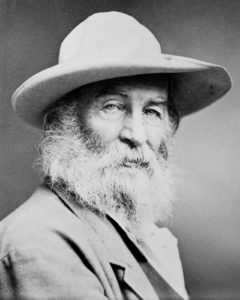We have decided to create the most comprehensive English Summary that will help students with learning and understanding.
Animal Farm Chapter 2 Summary
Soon after the meeting, something unusual happened at Manor Farm. Old Major died peacefully in his sleep, three days after the meeting took place. The animals buried him in the farm’s orchard. In the three months that followed, the most intelligent of the animals began meeting regularly. Even though they didn’t know when the Rebellion would happen, yet, they organized for it. The work of organizing and teaching fell upon the pigs, who were considered to be the cleverest of all animals.
The two pigs, Napoleon and Snowball, took the responsibility upon themselves. Snowball was a vivacious pig, whereas Napoleon was a large, rather fierce pig who was not much of a talker. Another pig named Squealer, joined Napoleon and Snowball, as he was well known for his powers of speech and persuasion. The three pigs worked together to formalize old Major’s ideas into a system of ideas called ‘Animalism’.
They held several secret meetings to expound the principles of Animalism to others. The pigs faced difficulty to convince other animals about the need for Rebellion. Some wondered why they should work for the Rebellion that might not happen in their life times. Among them was Moses, the raven, who promised them that they would go to a land of plenty called ‘Sugarcandy Mountain’, when they died. Boxer and Clover proved helpful in winning the animals over to the cause, because the animals believed the horses to be trustworthy.
Soon the animals got the opportunity to rebel against Mr. Jones who had lately fallen into evil ways. He lost a lawsuit and therefore, continued to neglect the farm and drank too much. His men were dishonest who also neglected the farm and, thus the farm kept deteriorating and the animals were kept underfed.
One Saturday night, Mr. Jones got drunk in the Red Lion and forgot to feed the animals. The cows broke in the door of the store shed and, thus all animals helped themselves to food. When Mr Jones tried to stop and whip the animals, they fought back. Jones, his family and his men ran out of the farm.
The animals, seeing what they had accomplished and realizing that they were free, destroyed the farmer’s tools and the symbols of their bondage, such as bits, nose rings and halters. They burned everything that reminded them of their oppressor. After that, they all sang ‘Beasts of England’ seven times before they could go to sleep.
The next morning the animals hurled themselves into the air with leaps of excitement and gazed around in the morning light. They all agreed on the point that no animal must ever live there. In the meantime, the pigs had taught themselves to read and write and renamed Manor Farm as Animal Farm.
On the bam wall they wrote the basic tenets of Animalism as Seven Commandments :
- Whatever goes upon two legs is an enemy.
- Whatever goes upon four legs, or has wings, is a friend.
- No animal shall wear clothes.
- No animal shall sleep in a bed.
- No animal shall drink alcohol.
- No animal shall kill any other animal.
- All animals are equal.
All animals agreed to them. Just before the animals moved out to the hayfield to harvest, they realized that the cows needed milking, so the pigs decided to do the job. When the animals wondered about what would be done with the buckets of milk, Napoleon told them not to worry. Soon after when the animals returned from the hayfield, they noticed that the milk in the buckets had disappeared.
Animal Farm Chapter 2 Summary Word Meaning
- Squealer – One who reveals confidential information in return for money.
- Unalterable – Not capable of being changed.
- Rebellion – Organized opposition to authority
- Manor – The land estate of a lord, including the house on it.
- Nimble – Moving quickly and lightly
- Vivacious – Vigorous and animated
- Apathy – An absence of emotion or enthusiasm
- Expound – Add details, as to an account or idea.
- Ecstasy – A state of elated bliss
- Persuasive – Intended or having the power to induce action or belief.
Animal Farm Chapter 2 Summary Questions and Answers
Question 1.
Read the extract given below and answer the questions that follow.
These three had elaborated Old Major’s teachings into a complete system of thought, to which they gave them the name of Animalism.
(i) Who had elaborated on Old Major’s teachings?
(ii) When and where did they hold their secret meetings? How did the meetings end?
(iii) What had the Old Major said about the nature of this life of ours’?
(iv) Who were the most faithful disciples? How did they contribute towards the preparations for the rebellion?
(v) Mention any two changes that were seen on the farm in the days immediately after the rebellion? How would you justify such a change ?
Answer:
(i) Two young boars, Snowball and Napolean, and a small fat pig Squealer, had elaborated on Old Major’s teaching.
(ii) The secret meetings were held several nights a week in barn, when Mr. Jones was fast asleep. The meetings always ended with the singing of song “Beasts of England” by Boxer and Clover leading other animals.
(iii) The Old Major said that nature of their lives (animal lives) was miserable, laborious and short. Animals were born, given as much food as would keep the breath in their bodies. And those of them who were capable were forced to work to the last of their strength in their bodies. The very instant their usefulness had come to an end, the animals were killed cruelly or slaughtered. No animal in England knew the meaning of happiness or leisure after it was a year old; no animal in England was free. The life of an animal was one of misery or slavery.
(iv) The most faithful disciples were the two cart-horses, Boxer and Clover. They accepted the pigs as their teachers, the two of them absorbed everything they were told, and passed it on to the other animals by simple arguments. They were the unfoiling attendants to the secret meetings in the barn and led the other animals in to singing ‘Beasts of England’, during the conclusion of the meetings.
(v) The two changes that took place on the farm after the rebellion were, firstly, Snowball changes the sign reading ‘Manor Farm’ to ‘Animal Farm’. Secondly, on the barn wall they wrote the basic tenets of Animalism as Seven Commandments. The change was justified because their owner Mr. Jones, ill-treated, and starved them to death. Nobody wants to lead a slave-life.
Question 2.
Read the extract given below and answer the questions that follow.
These three had elaborated Old Major’s teachings into a complete system of thought, to which they gave them name of Animalism.
(i) Who had elaborated on Old Major’s teachings ?
(ii) When and where did they hold their secret meetings ? How did the meetings end ?
(iii) What had the Old Major said about the ‘nature of this life of ours’ ?
(iv) Who were the most faithful disciples ? How did they contribute towards the preparations for the rebellion?
(v) How did the animals celebrate the day after the rebellion ?
Answer:
(i) Two young boars, Snowball and Napoleon, and a small fat pig Squealer, had elaborated on Old Major’s teachings.
(ii) The secret meetings were held several nights a week in barn, when Mr. Jones was fast asleep. The meetings always ended with the singing of song “Beasts of England” by Boxer, and Clover leading other animals.
(iii) The Old Major said that nature of their lives (animal lives) was miserable, laborious and short. Animals were born, given as much food as would keep the breath in their bodies. And those of them who were capable were forced to work to the last of their strength in their bodies. The very instant their usefulness had come to an end, the animals were killed cruelly or slaughtered. No animal in England knew the meaning of happiness or leisure after it was a year old; no animal in England was free. The life of an animal was one of misery or slavery.
(iv) The most faithful disciples were the two cart-horses, Boxer and Clover. They accepted the pigs as their teachers, the two of them absorbed everything that they were told, and passed it on to the other animals by simple arguments. They were the unfoiling attendants to the secret meetings in the bam and led the other animals in to singing ‘Beasts of England’ during the conclusion of the meetings.
(v) The day after the rebellion, the animals woke up early as usual and raced out into the pasture together. They rushed to the top of a knoll and gazed around them in the clear morning light. In ecstasy, the animals gambolled round and round, they hurled themselves into the air in great leaps of excitement. They rolled in the dew, cropped mouthfuls of the sweet summer grass. They kicked up clods of the block earth and snuffed its rich scent, made a tow of inspection of the whole farm and surveyed with speechless admiration the plough land, the hayfield, the orchard, the pool, the spinney.
Question 3.
Read the extract given below and answer the questions that follow.
Three nights later Old Major died peacefully in his sleep. His body was buried at the foot of the orchard. This was Piaetice the important event and epnodei of the stouf. Each incident in the novel mint he given due importance. early in March. During the next three months there was much secret activity.
(i) Who is the Old Major?
(ii) What dream did the Major have?
(iii) What secret activity was going on in the farm?
(iv) Who was responsible for expounding the teachings of the Old Major?
(v) Who was Moses? What lies was he spreading?
Answer:
(i) The Old Major was a prized Middle White Boar living at the Manor Farm, through the name under which he had been exhibited was, ‘Willingdon Beauty’. He was highly regarded by the residents of the farm.
(ii) The Old Major talked about the dream that he had the previous night. In his dream, all men had vanished from Earth. It also reminded him of a song, ‘Beasts of England’, that he had long forgotten.
(iii) The Major had sown the seeds of rebellion in the hearts of the residents of the farm. After his speech, they all started to prepare for the rebellion to happen not knowing when it would actually happen. They began teaching and organising themselves.
(iv) The work of teaching and organising the other animals fell naturally upon the pigs, who were generally considered the cleverest of the animals. Two of them were young boars named Snowball and Napoleon. The others were porkers and the best known amongst them was a pig named Squealer.
(v) The pigs were trying to convince the animals that the rebellion was much needed. But they had a hard time counteracting the lies put about by Moses, the tame raven. He was Jones’ special pet. He kept telling the animals that he knew of a mysterious country called Sugarcandy Mountain, to which all the animals went when they died.
Question 4.
Read the extract given below and answer the questions that follow :
‘Now as it turned out, the Rebellion was achieved much earlier and more easily than anyone had expected.’
(i) What was the “Rebellion”?
(ii) How was it achieved?
(iii) Whose idea was it and what preparations were required to achieve it?
(iv) Why do you think it was easily achieved?
(v) Describe the animals’ reaction after achieving success in the Rebellion.
Answer:
(i) The Farm animals depicted a rebellion for their freedom from the human tyranny. The farm animals revolted because of farmer Jones’ malnourishment and disinterest in them.
(ii) The thoughts which Old Major had instilled in his fellow comrades lived on and inspired them. They started to prepare for the rebellion not knowing when it would happen.
(iii) The idea of rebellion was planted by Old Major who had a vision of a farm owned by animals, who would work together for the common goal. His ideas were taken and expanded by the three clever pigs, Napoleon, Snowball and Squealer.
(iv) The rebellion happened more quickly than expected. Mr. Jones had been a good farmer before, but lately he had fallen into evil ways. He did not care much for the farm and the animals. One night Mr. Jones got drunk in the Red Lion and forgot to feed the animals. One of the cows broke into the store shed and all the other animals also started to help themselves. When Jones and four of his farmhands started whipping the animals to get them under control, they turned and butted and kicked, driving Jones off his farm. His wife packed her bags quickly and followed. Mr. Jones was expelled and his farm belonged to the animals now.
(v) The animals could hardly believe their luck. They searched the farm to ascertain if any of the humans were hiding there. Then they reached back to the farm buildings to wipe out the last traces of Jones hated reign. They burned everything reminding of Jones. They sang ‘Beasts of England1 and slept as they had never slept before. The merry making corginued even on the next day.
Question 5.
Read the extract given below and answer the questions that follow.
In a very little while, the animals had destroyed everything that reminded them of Mr Jones. Napoleon then led them back to the store-shed and served out a double ration of com to everybody, with two biscuits for each dog.
(i) Which major incident took place before this extract?
(ii) Why were the animals destroying the things belonging to Mr. Jones?
(iii) What happened right after this extract?
(iv) What did the animals do the very next morning?
(v) Later in the chapter, the pigs give out the Seven Commandments. What were these?
Answer:
(i) Just before this extract, the rebellion had happened. However, it had happened before anyone had expected it to occur. Mr Jones had forgotten to feed the animals one day. The animals were not able to bear the hunger and broke free. Then they scared Jones out of the farm.
(ii) The animals were living under the tyrannical rule of Mr Jones. They had been exploited by him. They were starved and had suffered many of his atrocities. But when he was overthrown, they did not want to see his belongings. These reminded them of the suffering and hence, they destroyed them.
(iii) After the animals had destroyed everything that reminded them of Mr Jones, they sang ’Beasts of England’ from beginning to end seven times running, and after that they settled down for the night and slept as they had never slept before.
(iv) The animals raced out into the pasture together. They went to the knoll from where they could see the whole farm. They enjoyed in the natural surroundings and were very happy to see that the whole farm belonged to them now. ’
(v) The pigs revealed that during the past three months they had taught themselves to read and write. Snowball took a brush and renamed the Manor Farm as Animal Farm. They further explained that they had reduced the principles of Animalism to Seven Commandments.
These would become an unalterable law by which all the animals on the Animal Farm must live ever after. They ran thus:
- Whatever goes upon two legs is an enemy.
- Whatever goes upon four legs, or has wings, is a friend.
- No animal shall wear clothes.
- No animal shall sleep in a bed.
- No animal shall drink alcohol.
- No animal shall kill any other animal.
- All animals are equal.
Question 6.
Read the extract given below and answer the questions that follow.
The Commandments were written on the tarred wall in great white letters that could be read thirty yards away.
(i) What were the Commandments?
(ii) Why did the animals need Commandments?
(iii) Who devised the Commandments and who wrote them on the wall?
(iv) Were the animals able to read and learn all the Commandments?
(v) What was the significance of the Seven Commandments in the ’Animal Farm1?
Answer:
(i) The Seven Commandments were as follow :
- Whatever goes upon two legs is an enemy.
- Whatever goes upon four legs, or has wings, is a friend.
- No animal shall wear clothes.
- No animal shall sleep in a bed.
- No animal shall drink alcohol.
- No animal shall kill any other animal.
- All animals are equal.
(ii) The animals needed commandments, because principles of Animalism were reduced to Seven Commandments and this will help all the animals of the farm to follow such unalterable law if they wanted to live happily ever after on the Animal Farm.
(iii) The three pigs, Napoleon, Snowball and Squealer, devised the commandments and Snowball who was best at writing them on the wall.
(iv) No, not all the animals were able to read and learn all the commandments. Snowball read it aloud for the benefits of others. All the animals nodded in complete agreement, and the cleverer ones at once began to learn the commandments
(v) Without law and order, it is nearly proven that civilization will fail. Because of this, Snowball saw it necessary to create a set of rules for the animals on the newly evolving farm, in Seven Commandments.


